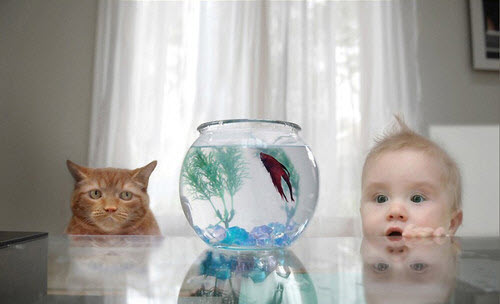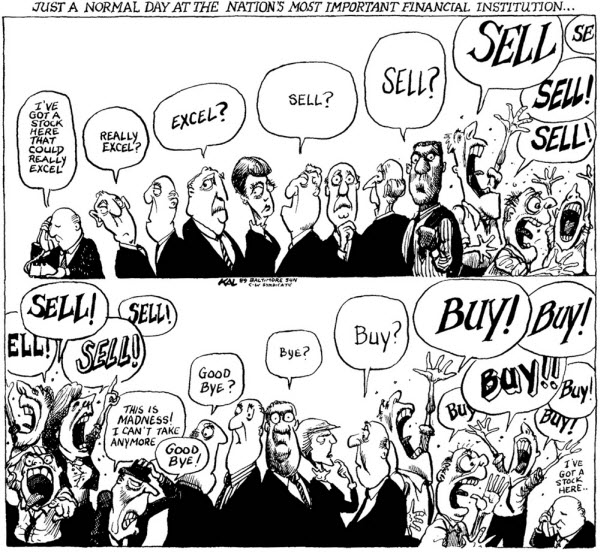Can two people look at the same thing, and see something totally different than each other?
It clearly happens often. To illustrate, in the following picture, is that 'a cute little fish' or 'lunch'?
Apparently, it depends on the perspective.
Context Changes Your Point-of-View.
When I'm in a meeting, I often assume that the majority of people in the room are on the same page and communicating reasonably well. Unfortunately, that's probably not likely.
For example, if I said the word "Red", what does that mean to you?
If I asked people randomly, you might guess I'd get answers like: 'hot', 'danger', 'loss', 'important', 'powerful', or even … "a color".
The point is, even though we all knew what the word means, we were not all evaluating the word from the same context. The disagreement didn't come from misunderstanding the word, it came from conflicting contexts.
Instead, what if I had said: "What does 'Red' mean in the context of driving?" Then, I suspect, that everyone in the room would have said that it means "Stop".
How Often Does That Happen To You?
What about word "Growth"? Does that mean 'top-line', 'profit', 'headcount', 'number of customers', 'number of products', 'number of locations', 'number of orders', or perhaps even 'height'? Without context, it's pretty easy to see how someone in finance, sales, operations, or development might think that they were having the same conversation, while instead they are talking about something slightly different than the other people in the room.
Next time you get frustrated that a simple conversation or agreement is taking too much effort or time, think to move one level higher and agree on a context.
Setting the context makes getting on the same page a lot easier. You can even agree to switch contexts to get a fuller picture. It makes prioritizing and coming to consensus easier as well.
This Applies to the Stock Market Too.
We've seen that people can interpret something as simple as "red" radically differently. Imagine what happens with more complex or subjective concepts.
This helps explain why the markets are so challenging.
Markets exist and trades happen because of a disagreement between the buyer and the seller. If the buyer didn't believe that price would go higher, it wouldn't make much sense to make the purchase. Likewise, if a potential seller believes that price is going higher, he would be less likely to sell.
How does that happen? Often, they are evaluating the markets from different perspectives or contexts.
So Are We in Up-Trend or Down-Trend?
Which way is the primary trend? Something as simple as this seems objective; but even it is subjective without the context of the time-frame. Are you talking about the past year, the past quarter, the past month, the past week, today, or the last 100 bars on a chart?
In addition to time-frame … some other areas for disagreement might include: how you interpret investor sentiment, or how you react to a piece of news, or whether you think you see a particular pattern (which to you implies or predicts a particular outcome) while someone else is responding to a different pattern that they think they see (which to them implies or predicts a different particular outcome).
Attempt To See The Whole Picture.
The point is simple, though; different people can look at the same thing and see something totally different from someone else.
It is helpful to identify the areas people are likely to disagree (or use different contexts) and attempt to see things from those perspectives.
After you've got a reasonably complete picture, all you can do prioritize what's there and do the best you can with what you've got.




Anyone that’s married has to understand these simple principles. We are all the center of our own universe.
Found you on Twitter, Elizabeth.
who is the composer of the fish image??